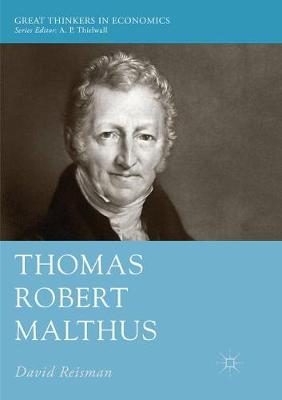Thomas Robert Malthus (1766-1834) was a leading figure in the British classical school of economics, best-known for extending the insights of Adam Smith at a time of revolutionary improvements in agriculture and industry. This book explores the way in which he accounted for the tendency to overpopulation, the exhaustion of arable land and the deficiency of effective demand.
Malthus relied on historical and empirical evidence in the spirit of Bacon and Hume, but also backed up his data with a priori hypotheses that link him to his contemporary, David Ricardo. Malthus was strongly in favour of free trade, the minimal State, the gold standard and the abolition of poverty relief. Always a pragmatist, however, he was just as much in favour of public education, contra-cyclical public works and a safety net of tariffs and bounties to encourage national self-sufficiency with regard to food. He was both an economist and a clergyman and saw the two roles as interconnected. Malthus believed that a benevolent Deity had created vice and misery in order to shake human beings out of their natural indolence that would otherwise have condemned them to still greater distress.
This title provides a clear and comprehensive examination of Malthus’s economic and social thought. It will be of interest to students and scholars alike.
- ISBN13 9783030132033
- Publish Date 10 December 2019 (first published 18 October 2018)
- Publish Status Active
- Publish Country CH
- Imprint Springer Nature Switzerland AG
- Edition Softcover reprint of the original 1st ed. 2018
- Format Paperback
- Pages 312
- Language English
